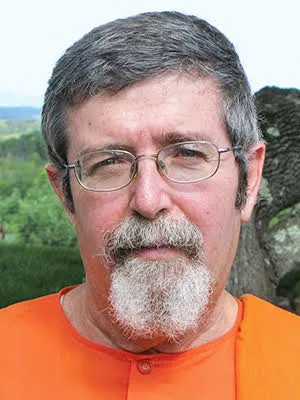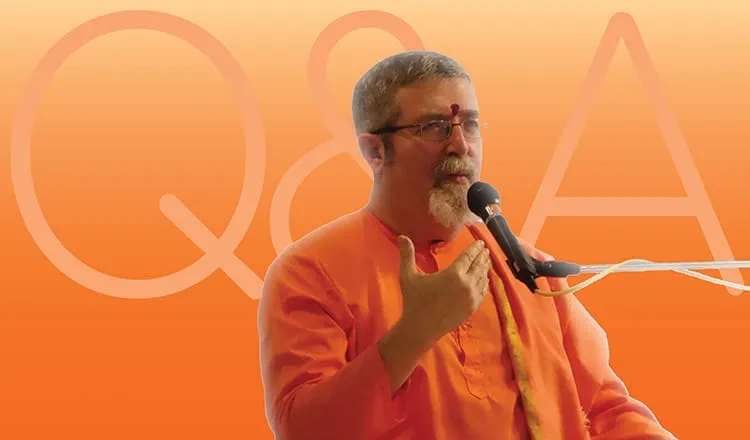Sivananda Bahamas Blog
Expand Your Horizons …
Our Blog
Facing Fear and Generating New Habits
Question: I have a tendency to run away from hard situations. How do I properly face my fears?
Answer: First of all, sometimes it is good to run away from situations; it is not correct to say that it is always healthy to face situations. Sometimes it is better to run away. Nonetheless, if we are always in the habit of running from situations then this may be the question: What happens if we are in the habit? Swami Sivananda explained that in order to change habits we need to create new ones. For example, if we are in the habit of running away from situations, then we have to create a new habit of facing situations, when it makes sense to face them.
Instead of blindly facing situations, it is better that we discriminate and discern. In certain occasions it is definitely better to run away but at other times, it is definitely better to face difficult situations. In those cases, we need to create a new habit. And a new habit is created by repetition. The more times that we face a situation of which we have the tendency to run away, slowly we create impressions in our subconscious mind. These impressions, slowly come together and eventually create a habit. Every time that we are successful in facing a situation in spite of the tendency to run away, we are generating this new habit.
In order to practice discrimination, Swami Sivananda suggested to start with simple things that are a little difficult— but not be too easy. If it is too easy, it will not help us. It has to be a little difficult, but not too difficult. Swami Sivananda says that each time we are successful in overcoming a habit, in overcoming an old fear, this success becomes a stepping stone toward a further success. Then the more successes we experience through facing difficult situations, the more we generate new habits in our lives.
Sometimes we are going to fail. Sometimes even with all of our best intentions, we will run away. Swami Sivananda would say “Nil desperandum,” which means do not lose hope. Do not despair. He would say “Every failure is a stepping stone toward success.” It means, try again.
For example, when I came for the first time to the yoga center many years ago, I took my first yoga class and the teacher taught me how to perform a headstand. I could not perform it; I fell down. It was quite a terrifying experience. So the teacher taught me how to tumble, how to fall. It is good to know how to fall. And I tried and I failed, and I tried and I failed. This became my practice; to try and to fall down. And so, I would come to a yoga class and the teacher would say, “Now go into the headstand.” And I knew that my practice was to fall down. One day I was ready to fall down — in fact, I was planning to fall down — but this particular time, I went up and I did not fall down. I was surprised.
I saw the justice in that statement that if you try and try again, one day you are not going to fall, you are not going to fail.
So if you try and try again, one of these days, you are not going to run away from those situations in which it is favorable to not run away. But in between the beginning and that point of success, it will be a gradual path, with many attempts. There will be successes and there will be temporary failures. And temporary failures, as Swami Sivananda says, are stepping stones toward success.
There is no reason to give up, because we will be successful. This is certain. But we have to keep trying. We need to understand how habits are generated — how new habits are generated and how old habits are eradicated. By repeating and practicing new habits again and again and never giving up ... this is how new habits are generated.

Swami Swaroopananda is a senior disciple of Swami Vishnudevananda. A practicing yogi from a very young age, Swami Swaroopananda has dedicated his life to the practice and teaching of yoga. He taught in Yoga Teacher Training Courses around the world and is currently teaching advanced yoga philosophy courses and lectures internationally. He is Director of the Sivananda Ashram Yoga Retreat and acharya (spiritual director) for the Sivananda centers and ashrams in the Bahamas and the Middle East. He is a member of the Board of Directors of the International Sivananda Yoga Vedanta Centres.
Upcoming Courses
Enjoy a delicious vegetarian feast, a reading of the Haggadah, Passover chants, and teachings on Passover’s relationship to yogic principles.
In honor of the Sivananda lineage and Swami Swaroopananda's birthday, we invite all guests, friends, and residents of the ashram to come together for a celebration.
During this special time of year we invite you to join us in celebrating wisdom, love, compassion, and the transcendence of artificial barriers.









One thought on “Facing Fear and Generating New Habits”
Nirmala
This is very beautiful and encouraging! And inspires me to keep trying… “Nil desperandum.” Om Namah Sivayah!